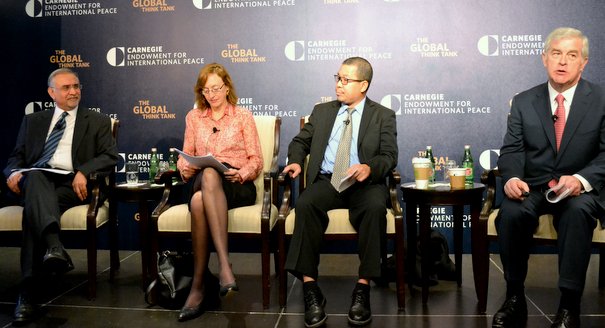Registration
You will receive an email confirming your registration.
It’s been a month since Aung San Suu Kyi and her National League for Democracy party won a landslide victory in Myanmar’s general elections. The new parliament will begin deliberations in late January 2016, and a new president will be elected in March. But there is no certainty that the transfer of power will be smooth or peaceful—or whether it will happen at all. The country has entered uncharted waters, and much will depend on how events unfold over the next four months.
William Sweeney, U Aung Din, and Christina Fink provided a post-mortem on Myanmar’s electoral process and results, examined the remaining challenges the country faces during the transition period, and explored the longer term implications of this historic election. Vikram Nehru moderated.
This event is part of Carnegie’s Myanmar Votes 2015 project which is being co-sponsored by the Asia Society Policy Institute and the Southeast Asian Studies Program of the Johns Hopkins University’s School of Advanced International Studies.
William Sweeney
William Sweeney is the president and CEO of the International Foundation for Electoral Systems, the independent agency that provided technical assistance to Myanmar’s Union Election Commission on the administration of the recent elections.
U Aung Din
U Aung Din is senior adviser for Open Myanmar Initiative based in Yangon. A former political prisoner in Myanmar between 1989 and 1993, he was a founder of the U.S. Campaign for Burma.
Christina Fink
Christina Fink is a cultural anthropologist who is a professor of practice in international affairs at George Washington University’s Elliott School of International Affairs.
Vikram Nehru
Vikram Nehru is a senior associate in Carnegie’s Asia Program where he focuses his research on the economic, political, and strategic issues confronting Asia, particularly Southeast Asia.
